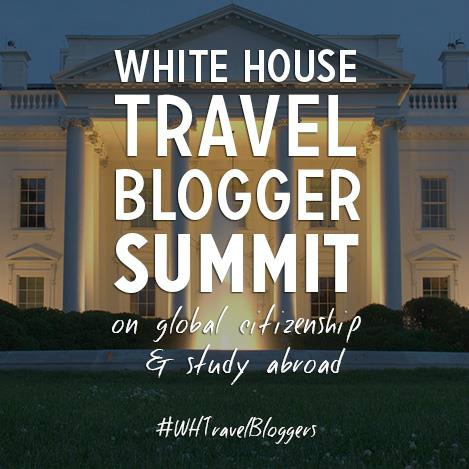
by Elizabeth Atalay | Jan 6, 2015 | 2015, Environment, Global Citizenship, Humanitarian, International, Milestones, Millennium Development Goals, Social Good, Sustainable Development Goals

The 2015 deadline for the eight Millennium Development goals is upon us. As of December 31st 2015 not all of the goals will have been met, but huge progress has been, and continues to be made. If anything the past 15 years showed what is truly possible with concerted effort and proper funding. The MDGs were set in the year 2000 by 189 nations, and the Millennium Goal Declaration was put in place as a step to alleviate extreme poverty around the globe. Negotiations of the Post 2015 development agenda are due to take place early this month, and will build on the progress made thus far through the 8 MDGs.
The next set of 17 sustainable development goals, which have 169 associated targets, are being referred to as the SDGs. The proposed goals are to end poverty, end hunger, achieve healthy lives for all, provide quality education, attain gender equality, empower women, and girls the world over. To ensure clean and sustainable water, sanitation, and sustainable energy for all. Goals include economic growth, resilient infrastructures, reduction of inequality between countries, to make cities safe, create resilient consumption and production cycles, urgently combat climate change, conserve our oceans, protect our ecosystems, create peaceful, inclusive and just societies, and strengthen global partnerships towards sustainable development.
On December 31st UN Secretary-General Ban Ki-moon released his synthesis report of all the suggestions entitled “The Road to Dignity by 2030: Ending Poverty, Transforming All Lives and Protecting the Planet”, and broke the SDGs into what he referred to as 6 essential elements to serve as conceptual guides in the work of outlining the final goals. Here are the six key elements according to a press release issued by UN Secretary-General Ban Ki-moon on December 4th of 2014.
1. DIGNITY
The first element is dignity: an essential element for human development, encompassing the fight against poverty and inequality.
2. PEOPLE
Second is people: Millions of people, especially women and children, remain excluded from full participation in society. We must finish the work of the Millennium Development Goals.
3. PROSPERITY
Third, prosperity: We must develop a strong, inclusive and transformative global economy.
4. OUR PLANET
Fourth, our planet: We have an urgent duty to address climate changes and protect our ecosystems, for ourselves and our children.
5. JUSTICE
Fifth, justice: to build safe and peaceful societies, and strong institutions.
6. PARTNERSHIP
And finally, partnership: because this agenda will be built on a foundation of global cooperation and solidarity.
These six broad categories provide a much more digestible approach to the 17 goals that will be finalized at the General Assembly in September of 2015. As #WorldMoms it will be our children, the next generation, who will carry through many of these goals, and be the ones help to innovate, execute, and hopefully see the end goal of eradicating extreme poverty by the year 2030.
What do you think of this new proposed set of SDGs?
This is an original post written by Elizabeth Atalay for World Moms Blog. She also writes at documama.org.

Elizabeth Atalay is a Digital Media Producer, Managing Editor at World Moms Network, and a Social Media Manager. She was a 2015 United Nations Foundation Social Good Fellow, and traveled to Ethiopia as an International Reporting Project New Media Fellow to report on newborn health in 2014. On her personal blog, Documama.org, she uses digital media as a new medium for her background as a documentarian. After having worked on Feature Films and Television series for FOX, NBC, MGM, Columbia Pictures, Warner Brothers, 20th Century Fox, and Castle Rock Pictures, she studied documentary filmmaking and anthropology earning a Masters degree in Media Studies from The New School in New York. Since becoming a Digital Media Producer she has worked on social media campaigns for non-profits such as Save The Children, WaterAid, ONE.org, UNICEF, United Nations Foundation, Edesia, World Pulse, American Heart Association, and The Gates Foundation. Her writing has also been featured on ONE.org, Johnson & Johnson’s BabyCenter.com, EnoughProject.org, GaviAlliance.org, and Worldmomsnetwork.com. Elizabeth has traveled to 70 countries around the world, most recently to Haiti with Artisan Business Network to visit artisans in partnership with Macy’s Heart of Haiti line, which provides sustainable income to Haitian artisans. Elizabeth lives in New England with her husband and four children.
More Posts

by Jennifer Burden | Dec 11, 2014 | 2014, Global Citizenship, World Interviews

What I learned at the White House Travel Blogger Summit this week…!
On Tuesday, December 9, 2014, the White House invited over 100 social media influencers in travel and global citizenship to Washington, D.C. to discuss study abroad programs for students. Puzzled about the high level concern? Statistics show that our country is lacking in global ambassadors abroad, and this effects our global economic competitiveness and matters of global security.
Did you know that from 2012-2013 just under 300,000 U.S. students studied abroad for university credit?
It sounds like a big number, right? Well, according to Evan Ryan, Assistant Secretary of State for Educational and Cultural Affairs at the US Department of State, that number accounts for just 1.5% of the population of 20 million students enrolled during that same time period. Just 1.5%. Shocking, right? Yet, nearly 50% of students indicate that they are interested in studying abroad when they first enter university. So, why is traveling abroad as a student actually a rarity?
Some barriers to taking the international leap can be finances (that was my case!), no flexibility to take courses outside the university in your major, parental concerns, roommate concerns, intimidation of living in a foreign country and lack of information about programs and scholarships.
These were the type of issues that we discussed with top U.S. government officials at the White House Travel Blogger Summit this week. In fact, the White House has announced the launch of a U.S. study abroad office within the next 6 months, as well as, the first-ever Virtual Study Abroad Fair, to be held on February 25, 2015. The new office will help make it easier for more students, regardless of sex, race or socioeconomic status to make studying abroad a reality. And perhaps, we, at World Moms Blog can help with the parental concern part. 😉 (Stay tuned to the blog for advice for parents!)
Why is the U.S. State Department pushing the value of an international component of education?
Our next generation of leaders must have experience as global citizens to be able to “operate within the global political and economic landscape of the 21st century”, according to Evans. An increase of Americans traveling, studying, working and volunteering abroad also helps to break false American stereotypes.
Making Study Abroad Affordable…
Affording to study abroad is not a reality for many American students, which limits the pool of our student ambassadors, limiting the world’s picture of who the American student is. The diversity of American students has not been properly represented to the world with 76% of study abroad students in the 2012-2013 academic year being white, 5% African American, 8% Hispanic, 7% Asian/Pacific Islander, and less than 1% Native American, as per Ryan.
In my own student experience, I spent a summer abroad in Japan in high school thanks to a local scholarship, when I got to college the door to study abroad was closed to me. I was receiving need-based financial aid at a private university consisting of both, Federal aid and aid from my university’s scholarship fund. However the private funds only applied to my education at the university, not abroad. So, I was disappointingly priced out.
This week I had the opportunity to speak with Evan Ryan one-on-one just before she spoke at the White House Travel Bloggers conference, and when I told her my story, she told me about the Benjamin A. Gilman International Scholarship Program. This scholarship aims to target the population of U.S. students underrepresented in study abroad programs and sends about 2,000 kids abroad to study annually. To be considered for the scholarship, a U.S. student must be receiving need-based financial aid, such as an US Pell Grant or US Stafford Loan (two types of government subsidized need-based university financial aid).
The challenge? Over 9,000 students apply for the Gilman scholarship each year, but only 2,000 can go. It would be great for more students on need-based financial aid to have a global education experience, and the launch of the new U.S. office of study abroad plans to work toward just that goal — that study abroad is for everyone.
The Economic and Political Landscape is Changing and Friendship Aids Navigation
With greater access to transportation and technology in this day and age, the economic and political landscape is changing. There will continue to be more business and government roles that will require candidates who have foreign language skills and global experience. And, perhaps, the most important and overlooked landscape? Friendship.
Having friends around the world is interesting, fun and mind opening, as we have been learning for the past 4 years, here, at World Moms Blog. Being able to put ourselves in our foreign neighbors’ shoes to better understand what their lives are like makes us more understanding global citizens, and vice versa.
One of my most interesting moments in blog friendship was when one of our international contributors that I’ve been working with here over the years once said to me, “I had no idea Americans could be as understanding as you.” It took me by surprise! But then I realized where her statement was coming from — she was getting to know my country in a more personal way through our friendship, just as I was getting to know hers. Social interaction is key to global citizenship and breaking stereotypes.
Just by increasing the human interaction between people of different countries and cultures, I really believe that her sentence can be replaced with any nationality. The key is getting to know each other and realizing that what it is to be a good human prevails behind borders, burkas, playing helmets, Mardi Gras masks, kilts, saris, newspaper headlines and beyond. We just have to get to know one another, human to human, and then we can better navigate the changing global landscapes…together.
Want to know more about the White House Travel Blogger Summit? Watch the video here:
“When we study together and we learn together; we work together and we prosper together.” — President Barack Obama May 3, 2013 **Stay tuned for more about the White House Travel Bloggers Summit on World Moms Blog — we have even more to say about our tour of the White House, experience at the National Press Corp., Newseum tour and dinner sponsored by Turkish Airlines and additional speakers on global citizenship and travel abroad!
This is an original post by founder, Jennifer Burden of New Jersey, USA, to World Moms Blog.

Jennifer Burden is the Founder and CEO of World Moms Network, an award winning website on global motherhood, culture, human rights and social good. World Moms Network writes from over 30 countries, has over 70 contributors and was listed by Forbes as one of the “Best 100 Websites for Women”, named a “must read” by The New York Times, and was recommended by The Times of India.
She was also invited to Uganda to view UNICEF’s family health programs with Shot@Life and was previously named a “Global Influencer Fellow” and “Social Media Fellow” by the UN Foundation. Jennifer was invited to the White House twice, including as a nominated "Changemaker" for the State of the World Women Summit. She also participated in the One Campaign’s first AYA Summit on the topic of women and girl empowerment and organized and spoke on an international panel at the World Bank in Washington, DC on the importance of a universal education for all girls. Her writing has been featured by Baby Center, Huffington Post, ONE.org, the UN Foundation’s Shot@Life, and The Gates Foundation’s “Impatient Optimists.” She is currently a candidate in Columbia University's School of International and Public Affairs in the Executive Masters of Public Affairs program, where she hopes to further her study of global policies affecting women and girls.
Jennifer can be found on Twitter @JenniferBurden.
More Posts - Website
Follow Me:











